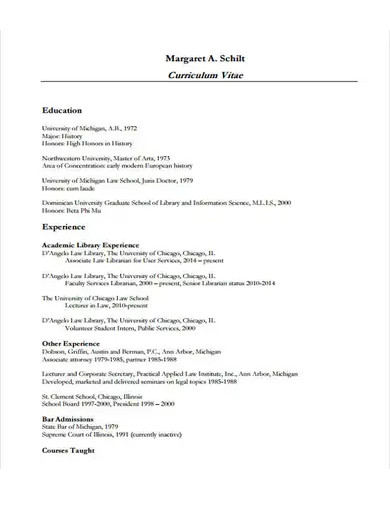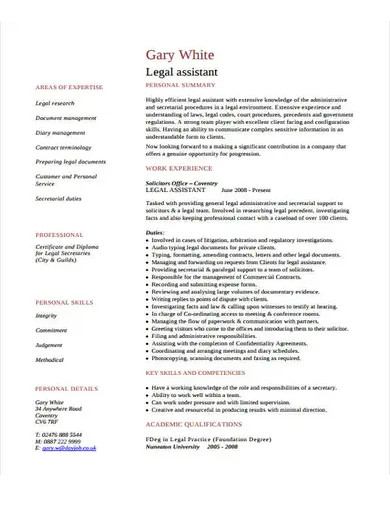8+ Law CV Examples to Download
Many recruiters receive hundreds of applications for open positions in the legal profession, particularly at the larger law firms with the best reputations. A recruiter can spend less than 20 seconds on average reading at a curriculum vitae (CV), so it must be jam-packed with compelling content that will entice them to read more.
If you’re a law student or lawyer, you should be cautious about what you put in your law CV. Also, choose the best template to increase the chances of getting an invitation to an interview. To get some idea about these, continue reading the following:
8+ Law CV Examples
1. Patent Law Resume Template
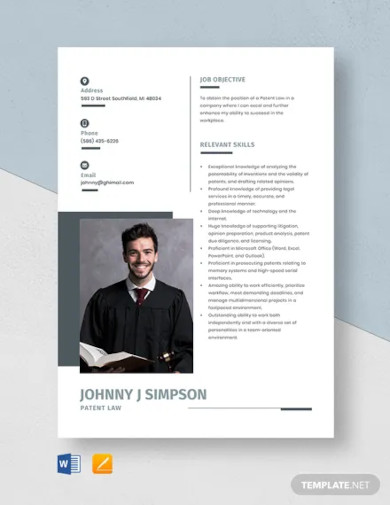
2. Law Enforcement Resume Template
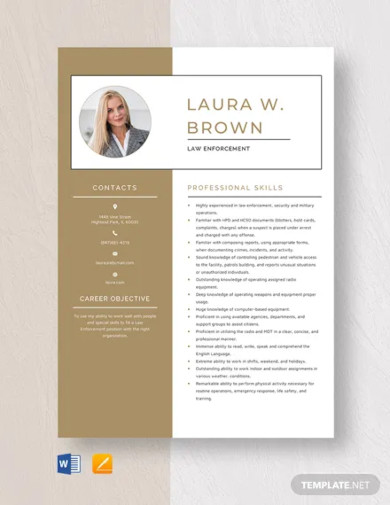
3. Family Law Attorney Resume Template
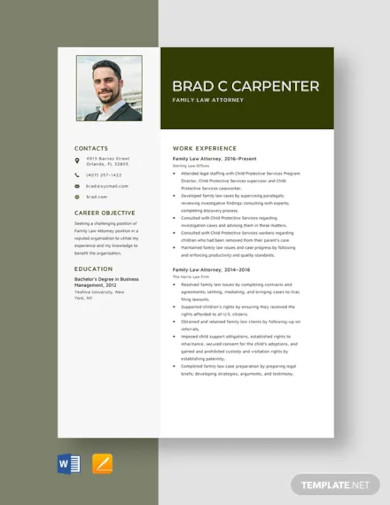
4. Criminal Law Paralegal Resume Template
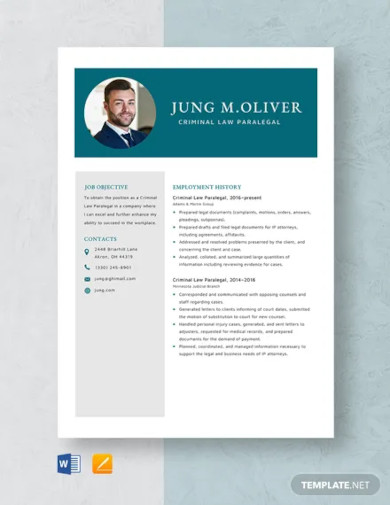
5. Law Office Secretary Resume Template
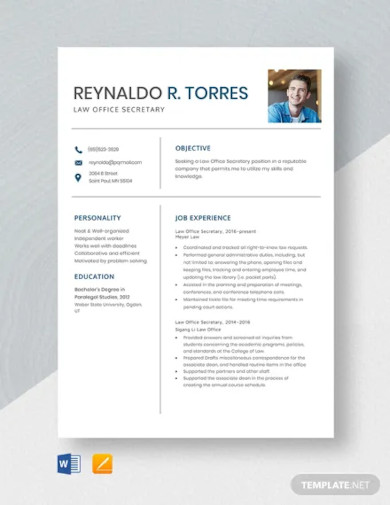
6. Law Office Manager Resume Template
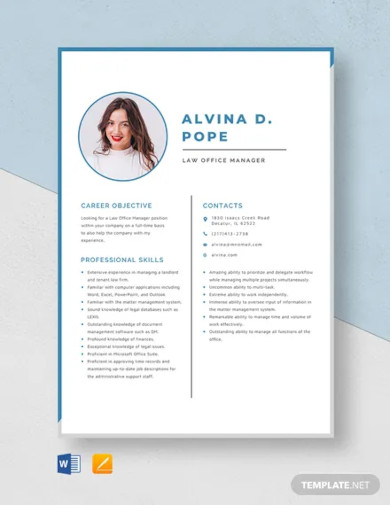
7. Law Firm Office Manager Resume Template
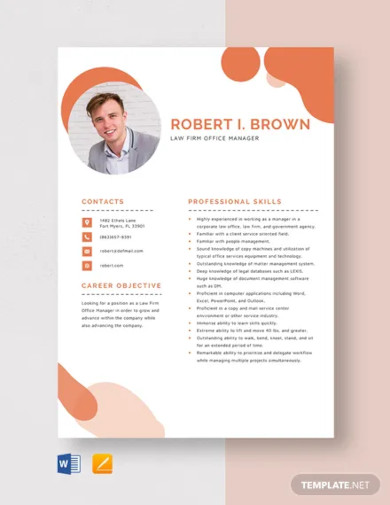
8. Law Librarian Curriculum Vitae
9. Law Assistant CV Template
What Is a Law CV?
Getting a job can be a daunting task, but having a good curriculum vitae can make it much easier to attract employers’ interest and encourage you to stand out from the competition. Law CV is a document that contains information about your professional qualifications, including your expertise, job experience, and learned knowledge.
How to Create a Law CV?
Creating a curriculum vitae (CV) can be tricky for several lawyers applying for jobs at law firms or other legal departments. You might be unsure about the right way to arrange the elements and whether precise information is necessary. Is a flashy style more likely to support or harm your chances? The following legitimate resume writing tips will assist you in landing the position that you desire.
1. Keep It Short and Simple
The most necessary piece of resume writing advice is to keep things short and simple. Resumes are scanned easily by legal recruiting managers, and if you write one that is too long, you risk burying the qualities that make you a good candidate for the role. If you have five or more years of experience, you don’t have to keep the paper to one sheet, but don’t make it too long. Every word should highlight your talents and make you look fine.
2. Educational Background
The length of your career will determine whether you begin your resume with your legal degree or experience. Start with your background if you’ve served as a lawyer or paralegal for more than three years. Or start with your education if you’re a new associate. However, if you have been working for a while, you would want to start your education if the law school you graduated from is top-tier. Use reverse chronological style when discussing your career, regardless of which segment you begin with:
Prioritize your most recent qualifications or work experience.
3. Tailor Your CV for the Job
Consider your resume to be a living document that you can change regularly and tailor it to each position you apply for in a particular company. Learn all you can about the profession and the types of lawsuits you’ll be taking on, then tweak your resume to emphasize the specific qualities that will help you succeed in that type of litigation.
4. Choose Elegant Template
When writing resumes for legitimate jobs, avoid using odd colors or graphics. Your resume will stand out negatively if you use a shiny style. Also, stop using different fonts in your text, as this can make it difficult to read. On a white, neutral backdrop, a simple black form is best. To make it easier for recruiting managers to skim your resume, use bullet points, headings, and bold words.
FAQs:
Can you fake your degree on your resume?
A lie detected on a resume after an employee gets hired can cause dismissal. Depending on your profession, you could lose your legal license, putting an end to your future. To make it easy for hiring managers to skim your resume, use bullet points, headings, and bold terms.
Is providing false references illegal?
Any prospective employer can dismiss an employee who relies on a false statement. Contract infringement or misrepresentation law: Breach of contract are the two choices available to the provider.
How long can the curriculum vitae be?
On average, a CV should be between two and three pages long. Since employers don’t have strict CV length requirements, keeping it between two and three pages allows the recruiting manager to process the applicant’s familiarity with the position they’re applying for in the company.
If you are reading this post, for sure, you might be applying for a legal position or an intern. To ensure that your law CV is as solid as possible, follow the simple tips above and don’t stray from the standard curriculum vitae format. Grab them anytime!



